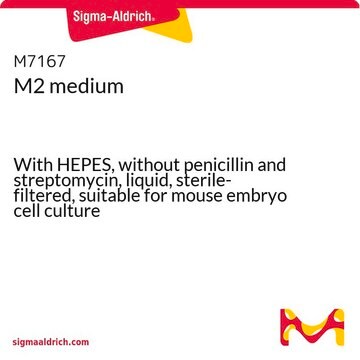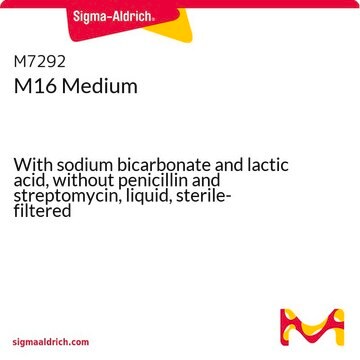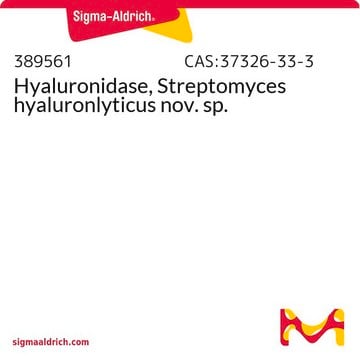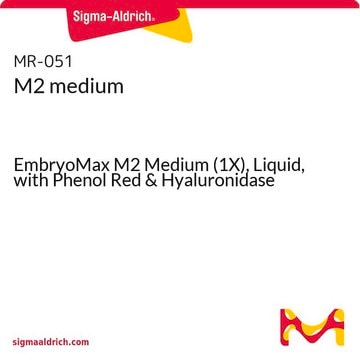H4272
Hyaluronidase from bovine testes
Type IV-S, powder, suitable for mouse embryo cell culture, 750-3000 units/mg solid
Synonym(s):
Hyaluronate 4-glycanohydrolase, Hyaluronoglucosaminidase
About This Item
Recommended Products
sterility
aseptically processed
Quality Level
type
Type IV-S
form
powder
specific activity
750-3000 units/mg solid
mol wt
~55 kDa (four subunits of 14 kDa each)
composition
Protein, 80-105% biuret
technique(s)
cell culture | embryo: suitable
storage temp.
−20°C
Looking for similar products? Visit Product Comparison Guide
Application
Gonadotropins are used to superovulate 20 female mice. The mice are then mated and preimplantation stage embryos are retrieved and counted. The embryos are treated with hyaluronidase until the cumulus mass is dissociated from the embryos. The embryos are cultured, viewed daily and progress of the embryos is recorded.
Biochem/physiol Actions
Unit Definition
Preparation Note
recommended
Signal Word
Danger
Hazard Statements
Precautionary Statements
Hazard Classifications
Resp. Sens. 1
Storage Class Code
11 - Combustible Solids
WGK
WGK 3
Flash Point(F)
Not applicable
Flash Point(C)
Not applicable
Personal Protective Equipment
Certificates of Analysis (COA)
Search for Certificates of Analysis (COA) by entering the products Lot/Batch Number. Lot and Batch Numbers can be found on a product’s label following the words ‘Lot’ or ‘Batch’.
Already Own This Product?
Find documentation for the products that you have recently purchased in the Document Library.
Customers Also Viewed
Articles
Mouse embryo media and embryo validated reagents for transgenic mouse embryo culture
Protocols
To measure hyaluronidase activity, a turbidimetric determination assay is used at 600 nm. One unit of hyaluronidase activity will cause a change in absorbance of 0.330 per minute at pH 5.35 at 37 °C.
To measure hyaluronidase activity, a turbidimetric determination assay is used at 600 nm. One unit of hyaluronidase activity will cause a change in absorbance of 0.330 per minute at pH 5.35 at 37 °C.
To measure hyaluronidase activity, a turbidimetric determination assay is used at 600 nm. One unit of hyaluronidase activity will cause a change in absorbance of 0.330 per minute at pH 5.35 at 37 °C.
To measure hyaluronidase activity, a turbidimetric determination assay is used at 600 nm. One unit of hyaluronidase activity will cause a change in absorbance of 0.330 per minute at pH 5.35 at 37 °C.
Our team of scientists has experience in all areas of research including Life Science, Material Science, Chemical Synthesis, Chromatography, Analytical and many others.
Contact Technical Service










